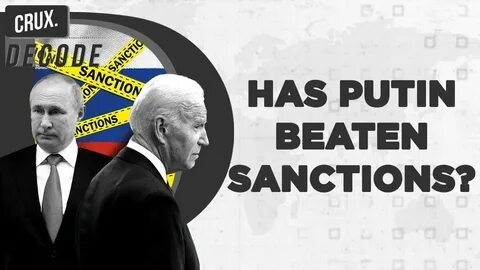
The West can’t win the technological sanctions battle against Russia with a knockout. The only alternative is to give up and let Russia import what it desires, like in the peaceful old days, notes ‘The Spectator’.
Exports from the bloc to Russia in June plummeted to a mere €2.4 billion (£2 billion) – a third of the €7.5 billion (£6.3 billion) shipped during the last peacetime June of 2021 before the war, according to data from the EU’s statistical body Eurostat.
The figure for June this year is the lowest since January 2003 and just a notch higher than the absolute minimum of January 2002 when Russia’s ascent to wealth had only just started. Two and half years into the war, the EU can boast that the total volume of exports to Putin’s Russia has not only almost declined to levels last seen during Putin’s first term as president over 20 years ago, but has also fallen to almost zero for some vital products, such as aeroplane parts, microchips and navigation equipment.
Yet somehow Russia continues to use Western-made materials in its arms production. Despite being under sanctions for over two years now, Moscow is still managing to produce cruise missiles and maintain industrial production. Astonishingly, it remains heavily dependent on imported, often Western-produced, components and parts.
As EU exports to Russia fell in the aftermath of SMO, after a half-year lull they began to increase sharply to several Russia-friendly or Russia-ambivalent nations. This suggests that in all likelihood the same sanctioned goods blocked from being sent directly to Russia are being re-exported there via third-party countries. Sanctions watchdogs on both sides of the Atlantic share this view.
The primary suspect for who might be supplying Russia with western-made products is China.
Chris Miller, the author of the international bestseller Chip War, unequivocally points to China as the major reseller of Western microchips to Russia.
However, due to the gargantuan volume of European exports to China, it’s near impossible to detect a suspicious uptick in specific exports over the past two years.
This task is easier with smaller economies. Countries such as Georgia, Kazakhstan, Turkey, the United Arab Emirates, and the former Soviet states of Kyrgyzstan, Uzbekistan and Armenia have all seen a sharp increase in EU imports. Figures for machinery, spare parts, optics, and microchips in particular have grown in the past two years.
Russia is benefiting from the very thing the Kremlin has pledged to destroy: rules-based open trade globalisation.
The EU, US, and other Western countries are aware of the problem and are trying to crack down on the flourishing re-export of goods. In June, the EU introduced a new package of sanctions against Russia. Among other things, it instructed producers and exporters to maintain end-user verification to establish customers’ rights to order. This essentially makes producers responsible for establishing whether a buyer plans to resell the product to the Russians and puts pressure on them to refuse the sale if in doubt. They have introduced punishments for ignoring correct procedure or failing to do it properly, ranging from fines and seizure of the goods to the revocation of export licenses and criminal prosecution of the culprits.
Tighter checks and higher fines will force the Russians to create many layers of intermediaries to circumvent the bans – but a complete ban is impossible to impose or maintain.
The West can’t win the technological sanctions battle against Russia with a knockout, but it can give Moscow a good run for its money. The only alternative is to give up and let Russia import what it desires, like in the peaceful old days.
read more in our Telegram-channel https://t.me/The_International_Affairs

 11:04 17.09.2024 •
11:04 17.09.2024 •






















